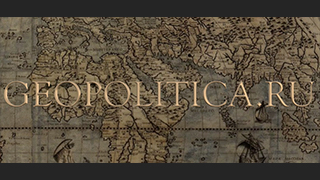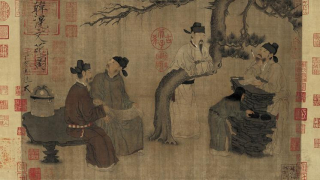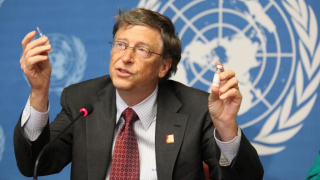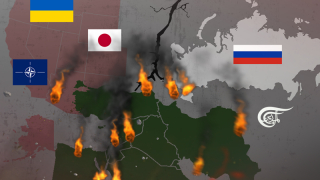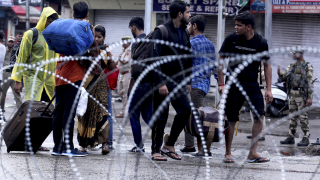Coronavirus and Collapse of Capitalism, Why the World Needs a New World Order
09.04.2020
While Coronavirus has now reached almost every nook and corner in the world, some unusual things were happening:
Acting Navy chief Thomas Modly had to resign after his profanity-laced remarks criticizing the fired captain of the coronavirus-hit USS Theodore Roosevelt were objected to by the common Americans.
WHO warned India that stigmatizing Muslim community for spread of Coronavirus in India was counterproductive; meanwhile an incident of loot occurred in Kota, Rajasthan, amid the ongoing nationwide lockdown. A flour mill's truck was attacked by a group of bikers on its way to the market and was looted by hungry people.
Trump had to threaten India for retaliation to get a supply of Hydroxychloroquine, urgently needed in the US.
Some of the Western countries and Indian media are teaming up to build a case against China and ask for damages of trillions of dollars from China.
In Hungary’s “Coronavirus coup” the parliament last week gave Prime Minister Viktor Orban the power to govern by decree.
A Russian military plane Antonov-124, landed at JFK Airport in New York - the epicentre of America's coronavirus outbreak, carrying medical supplies Wednesday (April 1); unfortunately some factions of the western media called it Kremlin’s soft power instead of humanitarian aid. Russia has previously sent medical supplies and experts to coronavirus-hit Italy as part of a humanitarian effort. Moscow said the aid for Italy included some 100 virus specialists with experience dealing with Ebola and swine fever.
Reports of increase in domestic violence, while people observed lock down.
Pakistan opened her border with Afghanistan to allow supplies of food and medicine; despite resistance from domestic audience.
It is sad to note that the mainstream Western media, due to obvious arrogance, has not acknowledged the good will gestures from Russia and China in extending a hand of kindness but instead called it Soft Power projection and geopolitics. So even in a global Pandemic the Western capitalist ideology has held sway over humanity. Apparently one tiny virus has actually punctured the bubble of Capitalism and Economic liberalism imposed upon the globe since last four decades. Where do we go from here and does the world need a new order after Coronavirus dust settles down?
Economic liberalism is a political and economic philosophy based on strong support for a market economy and private property in the means of production. Although economic liberals can also be supportive of government regulation to a certain degree, they tend to oppose government intervention in the free market when it inhibits free trade and open competition.
As an economic system, economic liberalism is organized on individual lines, meaning that the greatest possible number of economic decisions are made by individuals or households rather than by collective institutions or organizations. An economy that is managed according to these precepts may be described as a liberal economy.
Adam Smith and his followers in the west had advocated Economic liberalism emphasizing on free markets and private ownership of capital assets. Economic liberalism is also considered opposed to non-capitalist economic orders such as socialism and planned economies. It also contrasts with protectionism because of its support for free trade and open markets.
If economic Liberalism was considered as a panacea to all problems faced by humanity, why did states intervene in Italy, Spain, France, US and even in South Asia and Africa to stem the tide of Coronavirus, and, why did a socialist state like China fare better in this pandemic?
Sine mainstream media in most of democracies is controlled by vested corporate interests and the rich, the discussion on rights of 99% vs the 1% rich does not take place openly. Coronavirus has exposed this nexus and it’s time to highlight it for general public.
Foreign policy magazine conducted a short survey, asking some leading thinkers and opinion makers to come out with their assessment of impact of Coronavirus on the new World Order.
Stephen M Walt believes that the pandemic will strengthen the state and reinforce nationalism. Governments of all types will adopt emergency measures to manage the crisis, and many will be loath to relinquish these new powers when the crisis is over. COVID-19 will also accelerate the shift in power and influence from West to East. South Korea and Singapore have responded best, and China has reacted well after its early mistakes. The response in Europe and America has been slow and haphazard by comparison, further tarnishing the aura of the Western “brand.”
Walt goes on to conclude that conflictive nature of world politics. Previous plagues—including the influenza epidemic of 1918-1919—did not end great-power rivalry nor usher in a new era of global cooperation. Neither will COVID-19. We will see a further retreat from hyperglobalization, as citizens look to national governments to protect them and as states and firms seek to reduce future vulnerabilities.
In short, COVID-19 will create a world that is less open, less prosperous, and less free. It did not have to be this way, but the combination of a deadly virus, inadequate planning, and incompetent leadership has placed humanity on a new and worrisome path.
Robbin Niblett stated that it seems highly unlikely in this context that the world will return to the idea of mutually beneficial globalization that defined the early 21st century. And without the incentive to protect the shared gains from global economic integration, the architecture of global economic governance established in the 20th century will quickly atrophy. It will then take enormous self-discipline for political leaders to sustain international cooperation and not retreat into overt geopolitical competition.
While Coronavirus ravages the globe and hits all major financial capitals, it is dawning on the common man that the Capitalist ideology and liberalism has failed to rise to the occasion and this fair weather friend called Capitalism is an anathema to the word ‘humanity’.
Interestingly, it is also becoming apparent that states like China, with central control and disciplined population, are more suitable to fight the pandemics like Coronavirus. Some of the so called mature democracies like the US and European countries as well as noisy ones like India have not only failed to come out with a cohesive response but also resorted to gimmickry and deflection. Recent example of Indian PM Modi asking 1300 million Indians to come out in their balconies and clap and lit candles is testimony to this absurdity. Someone from Dharavi Slum in Mumbai, the largest slum in Asia, asked PM Modi through social media “with three families living in a hundred square foot room, where should they find a balcony”.
Getting closer to home in South Asia we find same failure of Economic Liberalism at play in India. On one side India boasts billionaires and brainiacs, nuclear bombs, technology and democracy, whereas on the other side it conceals the fact that two-thirds of people in India live in poverty or on the margins.
Why is India getting exposed in her own people and the international media? For decades, India has remained on the top spot of countries with 70% population living below or on the margins of poverty line, tens of millions of people remain destitute and thousands of farmers commit suicide each year. Nearly 40 percent of Indian children under 5 are short for their age, a sign of chronic under nutrition. Then it invented the witch craft of playing with figures thus bluffing Indian nation and international community.
Indian Finance Minister announced a relief package worth Rs 1.70 lakh crore to help the nation's poor tackle the financial difficulties arising from Covid-19 outbreak. Under the relief package, at least 800 million poor people will be covered; this package will translate into an additional five kilos of rice/wheat for every individual for a period of one month.
Indian mega-slums like Dharawi are made up of millions of informal workers who run mega cities like Mumbai, these slums are without sufficient drinking water supply, without garbage disposal and in many cases without electricity. The richest 10 % in India controls 80% of the nation's wealth, according to a 2017 report by Oxfam. And the top 1% owns 58% of India's wealth. (By comparison, the richest 1% in the United States owns 37% of the wealth). Another way to look at it: In India, the wealth of 16 people is equal to the wealth of 600 million people.
Coronavirus lockdown in India created a wave of poor and hapless people who were evicted from their work places and temporary homes by the rich, since they could not pay for their food and rent, the world witnessed a massive migration of approximately 10 million Indian marching for hundreds of kilometers to their villages, some of them dying on the roads. This ‘March of Tears’ has actually become an epitaph on the grave of economic liberalism in India.
Economic liberalism has played havoc in developed and developing countries and has failed the test of our times; it has created a swamp of money in the hands of 1% super rich and the states have become hostage to these individuals and multinational corporations.
To conclude, the world needs an urgent review of the global order; humanity needs preference over the exploitation by the super- rich and multinational corporations. Individually, the states will have to come up with a new social contract where the individual is allowed to have his basic rights covered by the state and he or she does not become a victim due to exploitation by the super-rich.





